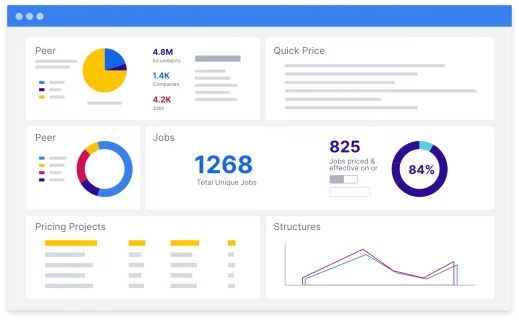A salary and compensation report is a document that provides a detailed analysis of an organization’s compensation practices. It typically includes information on salaries, bonuses, benefits, and other forms of compensation.
Key Components of a Salary and Compensation Report
- Job Analysis and Evaluation:
- A systematic process of defining job roles, responsibilities, and required skills.
- Evaluating the relative worth of different jobs within the organization.
- Market Pricing:
- Researching industry standards and competitive salary ranges.
- Using salary surveys and benchmarking tools to determine appropriate pay levels.
- Internal Equity:
- Ensuring fair pay practices within the organization.
- Addressing pay disparities and inconsistencies.
- Performance-Based Pay:
- Linking compensation to individual and team performance.
- Designing effective performance-based pay programs, such as bonuses and incentives.
- Total Rewards:
- Considering the total value of the compensation package, including base salary, bonuses, benefits, and perks.
- Balancing the mix of monetary and non-monetary rewards.
Uses of Salary and Compensation Reports
- Compensation Planning: Develop effective compensation strategies and budgets.
- Recruitment and Retention: Set competitive salary offers to attract and retain top talent.
- Performance Management: Link compensation to performance and reward top performers.
- Equity Analysis: Identify and address pay disparities.
- Budgeting and Forecasting: Plan future labor costs.
- Negotiation: Support salary negotiations and justify compensation decisions.
Best Practices for Creating Salary and Compensation Reports
- Data Accuracy: Ensure accurate and reliable data collection and analysis.
- Regular Reviews: Conduct regular reviews to keep the report up-to-date.
- Clear and Concise Reporting: Present information in a clear and concise manner.
- Data Visualization: Use charts and graphs to visualize data and make it easier to understand.
- Benchmarking: Compare compensation practices to industry standards.
- Legal Compliance: Ensure compliance with all relevant labor laws and regulations.
By conducting regular salary and compensation reports, organizations can make informed decisions about compensation strategies, improve employee satisfaction, and enhance overall organizational performance.
Would you like to know more about a specific aspect of salary and compensation reports, such as job evaluation, market pricing, or performance-based pay?




